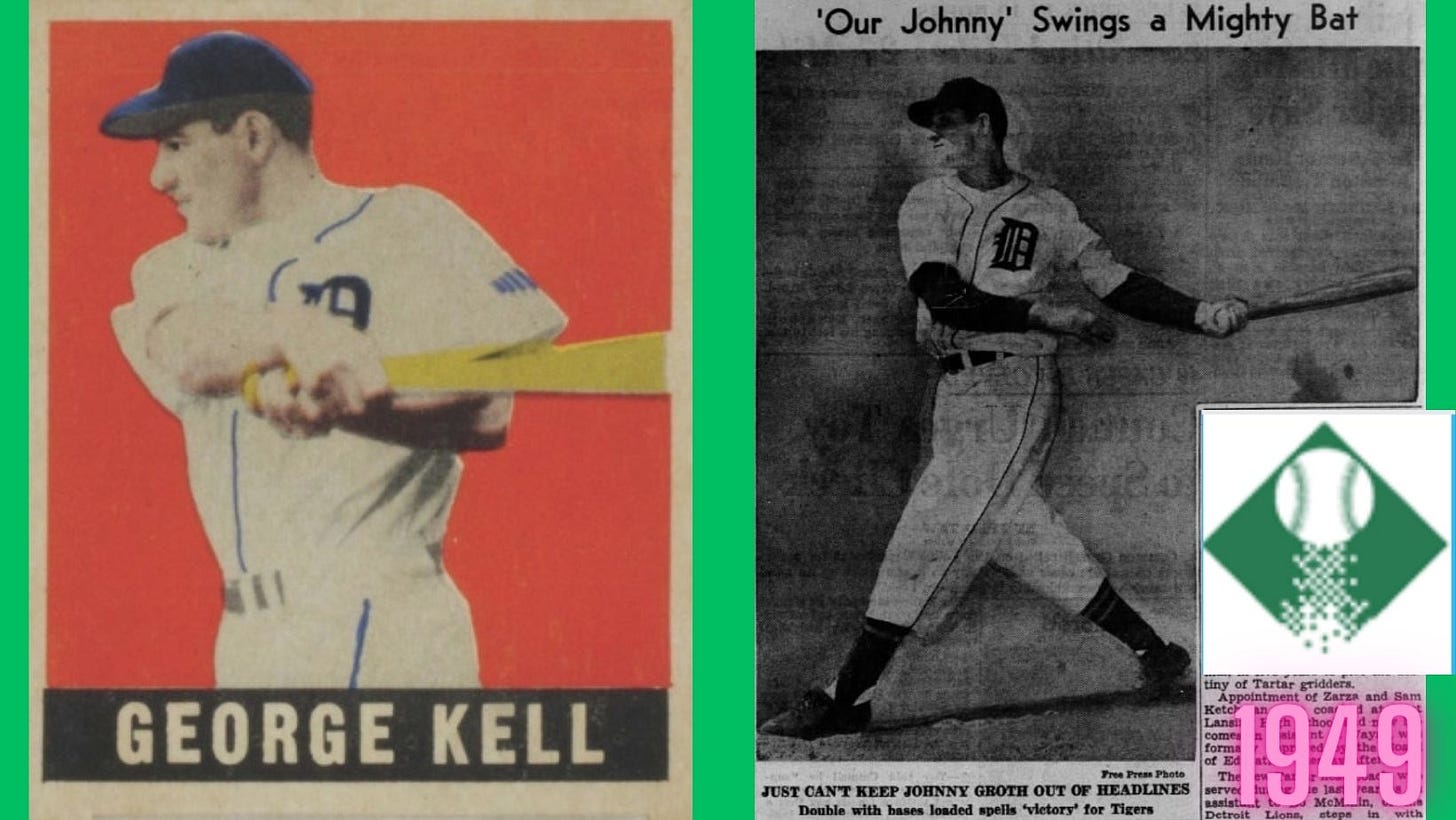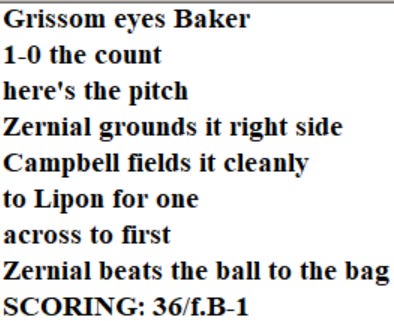Another Thriller
You never know when a close game is going to come your way.
I try to do my best to film games that I think might be close and are likely to be important in the pennant race. However, I don’t want to film them all, and I want to avoid making videos of a bunch of games between unimportant teams that few people will care about anyway.
Having said that, many of the most exciting games in any given replay will be between teams that are utterly ordinary.
The Weather
One of the interesting things about Diamond Mind Baseball is its weather system. It really does make a difference, as we’ll see today.
The wind was swirling around Comiskey for this one:
And, believe it or not, the heavy wind played a role right from the start.
Detroit got one in the top of the first. Chicago answered in the bottom of the first with two of its own, thanks to two straight walks given up by Tiger starter Ted Gray with the bases loaded.
The teams continued to trade blows back and forth. By the time Vic Wertz came up for Detroit in the top of the 4th with two men on, the score was 4-3 Tigers, and I thought this would be one of those games that you needed a calculator to keep up with:
By the way, that relay came from White Sox second baseman Cass Michaels — the same Cass Michaels we featured a while back.
Chicago came right back in the bottom of the 4th. With a runner on first base and one out, White Sox starter Bob Kuzava came up to bat:
Up came the always dangerous Luke Appling with a chance to do some real damage:
Now, that wasn’t really what I had in mind when I wrote “do some damage,” but it works.
That brought up none other than Cass Michaels, back in the spotlight of this blog once again:
And there you have it - 5-5, just like that.
One Rally Gone Wrong
The game surprisingly calmed down after that, even with the wind swirling around like mad. Seriously — this was one of those Chicago April days where the hot dog wrappers would start dancing in the air like a pack of crazy hummingbirds.
Michaels was back up there again in the bottom of the 6th inning, with two on and one out. And, well, funny things tend to happen when Cass is involved:
The inning-ending double play had now turned into a golden chance for the White Sox, with the heart of the order due up and only one out.
Up came Floyd Baker:
That’s right — Baker hit that ball so weakly to left field that the runner at third (Kuzava, again) couldn’t even score.
That brought up Gus Zernial, who had homered earlier in the game:
A little bit of work for Hoot Evers out there in left, but it wasn’t too bad. We were making it really easy on Gray, too, despite the fact that his control had left him.
A Second Rally Stamped Out
It kept getting worse for the ChiSox, unfortunately.
Catcher George Yankowski led things off:
Now it was decision time for me. Kuzava was up at the plate again, this time in a crucial situation. I considered pinch hitting, and took a look at the bench:
I don’t know about you, but nobody really stood out to me.
Besides, pinch hitting for Kuzava would mean bringing in a relief pitcher. Our prospects didn’t look much better on that front:
Remember — I play each of these games to win. I suppose I could have brought in Orval Grove, or even Howie Judson. I didn’t think either of those options would have increased our chances of winning, however.
Kuzava hadn’t pitched very well to this point, but at least the game was close. He wasn’t a great hitter, but at least he could bunt. Perhaps we could stay out of the double play.
I almost wish that Kuzava had bunted one foul for the strikeout.
I didn’t save the play by play, so I’ll have to explain this at bat to you. Bob’s first bunt attempt went foul, and he let the second pitch go by for a strike. Even with an 0-2 count, though, I figured that bunting would still be better than swinging away, since there was a real chance of hitting into a double play.
Well, we somehow managed to stay out of the double play, but they caught the lead runner. And now we had the pitcher on first base with one man out, instead of the catcher on second with two men out.
Up came Appling, who is supposed to be good in these situations:
Side retired. I guess they didn’t get the memo about my managerial genius.
Third Rally Crushed
How many chances to win do you get in this game anyway?
Baker came up to bat in the bottom of the 9th with one out, and did something good:
That brought up Zernial again — who, as I mentioned before, had already hit a home run earlier in the ballgame.
Well, we beat out the double play again, but that was all she wrote. Herb Adams came up next, and grounded out weakly.
Off to extra innings we went.
Tiger Attack
George Kell had a great year in 1949 in real life.
He’s going to have a great year in this replay, too, if he keeps hitting like this:
The score was now 6-5. I still had Kuzava in there, worried again about the sorry state of Chicago’s bullpen. This hit came with two men on and two men out, and I had hoped that we could find a way out of the inning without making a pitching change.
I tried for one more by letting Bob pitch to Johnny Groth, but then this happened:
The four pitch walk in this situation was all the evidence I needed to see that Kuzava was too tired to continue. Out he went, and in came Al Gettel.
Up came Wertz, who is dangerous in any situation:
We went to the bottom of the 10th down by a run, but failed to do anything against Marv Grissom. And that’s how it ended.
This was another classic 1949 game: 21 men left on base, 11 walks between the two teams, and yet only 11 runs.
Kuzava also went 178 pitches, which is probably going to make some of you upset. Maybe I should have pinch hit for him after all.























